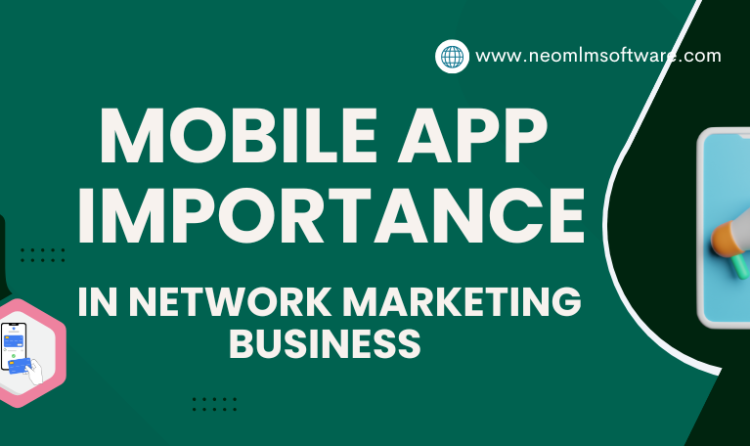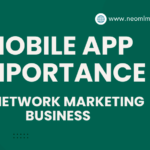In today’s digital age, the marriage of social media and e-commerce has given rise to significant transformations across various industries. One such industry that has witnessed a revolution is the multi-level marketing (MLM) business. With the increasing prevalence of social media platforms and the rapid growth of e-commerce, MLM businesses have found new avenues for growth and expansion. This article explores the profound impact of social media and e-commerce on MLM businesses and how they are reshaping the industry in 2023.

Contents Overview
ToggleTable of Contents
1. Introduction
The advent of social media has revolutionized the way people connect, communicate, and conduct business. Likewise, e-commerce has transformed the traditional brick-and-mortar shopping experience. MLM businesses, which rely heavily on building networks and selling products through independent distributors, have embraced these technological advancements to their advantage.
2. The Growth of Social Media
Social media platforms like Facebook, Instagram, and Twitter have experienced tremendous growth over the years. With billions of active users worldwide, social media has become a powerful tool for MLM businesses to reach a vast audience. These platforms provide an opportunity for MLM distributors to connect, engage, and promote their products or services.
2.1 The Influence of Social Media on MLM Business
Social media offers MLM businesses the ability to amplify their message, build brand awareness, and attract potential customers. Through compelling content, MLM distributors can share success stories, product demonstrations, and testimonials, creating a sense of authenticity and trust. Additionally, social media enables real-time communication and fosters a sense of community among MLM distributors and customers.
3. The Rise of E-commerce
Simultaneously, e-commerce has experienced exponential growth, especially with the convenience it offers to consumers. Online marketplaces, such as Amazon and eBay, have become go-to platforms for purchasing products. MLM businesses have tapped into this trend, embracing e-commerce platforms to expand their reach and streamline the buying process.
3.1 The Impact of E-commerce on MLM Business
By integrating e-commerce platforms into their MLM operations, businesses can provide a seamless shopping experience to their customers. Online storefronts enable distributors to showcase products, facilitate
secure transactions, and provide efficient order fulfillment. This integration has not only simplified the purchasing process but has also opened doors to a global customer base.
4. Synergy Between Social Media and E-commerce
The true potential of revolutionizing MLM businesses lies in harnessing the synergy between social media and e-commerce. By combining the power of both, MLM businesses can achieve unprecedented growth and success.
4.1 How Social Media and E-commerce Work Together in MLM
Social media acts as a catalyst for MLM businesses, driving traffic to e-commerce platforms and increasing sales. Engaging content on social media can direct potential customers to MLM websites or online marketplaces where they can explore products and make purchases. Likewise, e-commerce platforms can integrate social media sharing buttons, allowing customers to spread the word about MLM products through their networks.
5. Building a Strong Online Presence
To fully leverage the potential of social media and e-commerce, MLM businesses must focus on building a robust online presence. This involves implementing effective strategies for social media marketing and capitalizing on the features offered by e-commerce platforms.
5.1 Strategies for Effective Social Media Marketing
MLM businesses should define their target audience, create engaging content, and utilize social media analytics to refine their marketing efforts. By understanding their audience’s preferences and behaviors, MLM distributors can tailor their content to resonate with potential customers. They can employ a mix of text, images, videos, and live streams to captivate their audience and drive engagement.
5.2 Leveraging E-commerce Platforms
MLM businesses should carefully select and optimize e-commerce platforms that align with their products and target market. These platforms should offer a user-friendly interface, secure payment options, and seamless integration with social media channels. By harnessing the capabilities of e-commerce platforms, MLM businesses can provide a convenient and trustworthy shopping experience.
6. Connecting with a Global Audience
One of the significant advantages of utilizing social media and e-commerce in MLM business is the ability to connect with a global audience.
6.1 Expanding MLM Reach through Social Media and E-commerce
Social media allows MLM businesses to transcend geographical boundaries and tap into markets that were previously inaccessible. With effective targeting and localized marketing strategies, MLM distributors can engage with potential customers from different countries and cultures. Similarly, e-commerce platforms enable MLM businesses to ship products worldwide, facilitating seamless transactions and expanding their customer base.
7. Personal Branding and Influencer Marketing
To stand out in the competitive MLM landscape, personal branding and influencer marketing play a crucial role.
7.1 Establishing Authority and Trust
MLM distributors can build their personal brand by sharing their stories, expertise, and values on social media platforms. By positioning themselves as industry experts and trusted advisors, they can attract a loyal following and gain credibility among their audience.
7.2 Leveraging Influencers in MLM Business
Collaborating with influencers who align with the MLM business’s values and target audience can significantly boost brand visibility and product sales. Influencers can leverage their large following and authority to promote MLM products authentically. By incorporating influencer marketing into their strategies, MLM businesses can tap into new markets and gain the trust of potential customers.
8. Enhanced Customer Engagement and Communication
Social media and e-commerce platforms provide MLM businesses with unparalleled opportunities for customer engagement and communication.
8.1 Utilizing Social Media Channels
MLM businesses can actively interact with their audience by responding to comments, addressing queries, and providing personalized recommendations. These platforms enable MLM distributors to build relationships, foster loyalty, and gather feedback, allowing them to improve their products and services continually.
8.2 Providing Seamless E-commerce Experiences
E-commerce platforms facilitate smooth communication between MLM businesses and customers. They provide order tracking
, customer support, and easy return processes, ensuring a positive shopping experience. By prioritizing customer satisfaction, MLM businesses can foster long-term relationships and encourage repeat purchases.
9. Analyzing Data and Tracking Performance
Data analysis is vital for the success of any MLM business utilizing social media and e-commerce.
9.1 Harnessing Insights for Growth
Social media and e-commerce platforms provide valuable data and analytics that MLM businesses can leverage. By tracking key metrics such as engagement rates, conversion rates, and customer demographics, MLM distributors can gain insights into their marketing strategies’ effectiveness. This data-driven approach allows them to make informed decisions, optimize their campaigns, and drive continuous growth.
10. Overcoming Challenges and Staying Competitive
While social media and e-commerce offer tremendous opportunities, MLM businesses must navigate challenges to stay competitive.
10.1 Adapting to Changing Social Media Algorithms
Social media algorithms are continuously evolving, affecting the visibility of MLM content. To overcome this challenge, MLM businesses must stay updated with algorithm changes, diversify their content strategies, and engage with their audience consistently.
10.2 Navigating E-commerce Trends
The e-commerce landscape is dynamic, with emerging trends and technologies. MLM businesses should stay abreast of these trends, adopt new tools and techniques, and provide innovative shopping experiences to their customers.
11. Summary
In conclusion, the integration of social media and e-commerce has revolutionized MLM businesses in 2023. The growth of social media platforms has provided MLM distributors with a global reach, enhanced customer engagement, and a sense of community. Simultaneously, e-commerce platforms have streamlined the buying process, expanded market access, and enabled seamless transactions. By capitalizing on the synergy between social media and e-commerce, MLM businesses can build a strong online presence, connect with a global audience, and achieve unprecedented growth.
FAQs
Can anyone start an MLM business using social media and e-commerce?
Yes, social media and e-commerce have made it more accessible for individuals to start their MLM businesses. With the right strategies and platforms, aspiring MLM entrepreneurs can leverage social media and e-commerce to build their networks, promote products, and reach a wide audience.
How do social media and e-commerce help in expanding MLM businesses globally?
Social media provides a platform for MLM businesses to connect with people globally, breaking down geographical barriers. E-commerce platforms enable MLM businesses to sell products internationally, making it easier to reach a global customer base.
Are there any specific strategies for successful social media marketing in MLM?
Successful social media marketing in MLM involves defining a target audience, creating engaging content, utilizing analytics for optimization, and fostering a sense of community. Consistency, authenticity, and personalized communication are key factors in successful social media marketing for MLM.
What role does personal branding play in MLM business on social media?
Personal branding plays a crucial role in MLM business on social media. It helps MLM distributors establish authority, build trust, and differentiate themselves from competitors. Personal branding allows distributors to connect with their audience on a deeper level, leading to increased credibility and customer loyalty.
How can MLM businesses leverage influencer marketing effectively?
MLM businesses can leverage influencer marketing by collaborating with influencers who align with their brand and target audience. Finding influencers who genuinely believe in MLM products and can authentically promote them to their followers can significantly increase brand visibility and product sales.
What is an MLM business?
A business model where independent distributors sell products or services directly to consumers and earn commissions from their sales
Is MLM legal?
It is a legal business model in many countries, including the United States. However, it's important to note that MLM is subject to specific regulations and laws, and its legality can vary from country to country. While MLM itself is legal.






